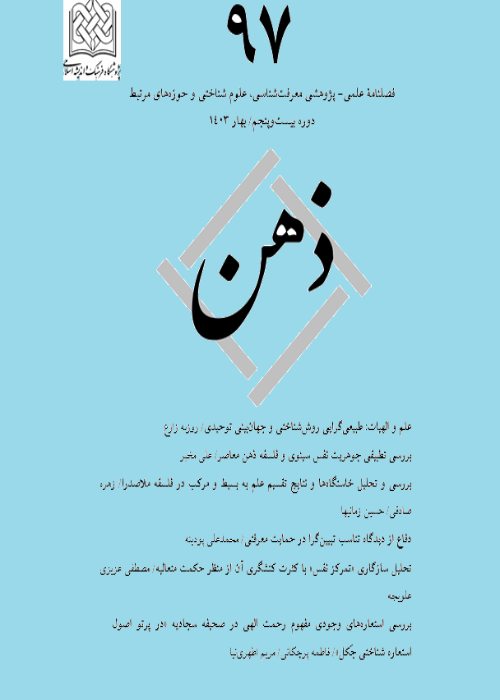Construction of Mind vs. Brain Modelling: Artificial Intelligence at the Crossroad
Author(s):
Abstract:
In the mid-20th Century when computers appeared, there emerged a hypothesis according to which such machines are similar to man's mind, and as computer sciences develop and progress, scientists will be able to manufacture such computers which enjoy all capabilities of man's mind. This project was called artificial intelligence, and its advocates assumed some fundamental similarity between man's mind and its intelligent capabilities on the one hand and computer on the other. And as computer sciences progress, we will face artificial minds. To achieve this goal, scientists of the field adopted two main approaches; the approach based on computer sciences was more welcomed. In this article, firstly, the author shows that which philosophical idea underlies the approach based on computer sciences, i.e. semiology; and causes of defeat of this approach have been studied. And secondly, the author has tried to show that how in the field of philosophy i.e. in the field of the ideas of later Wittgenstein and Heidegger, modern views have changed the approach to the project of artificial intelligence; and to give a more promising position to the second approach which may be called connectionism.
Keywords:
Language:
Persian
Published:
Journal of Zehn, Volume:8 Issue: 4, 2008
Page:
115
magiran.com/p605221
دانلود و مطالعه متن این مقاله با یکی از روشهای زیر امکان پذیر است:
اشتراک شخصی
با عضویت و پرداخت آنلاین حق اشتراک یکساله به مبلغ 1,390,000ريال میتوانید 70 عنوان مطلب دانلود کنید!
اشتراک سازمانی
به کتابخانه دانشگاه یا محل کار خود پیشنهاد کنید تا اشتراک سازمانی این پایگاه را برای دسترسی نامحدود همه کاربران به متن مطالب تهیه نمایند!
توجه!
- حق عضویت دریافتی صرف حمایت از نشریات عضو و نگهداری، تکمیل و توسعه مگیران میشود.
- پرداخت حق اشتراک و دانلود مقالات اجازه بازنشر آن در سایر رسانههای چاپی و دیجیتال را به کاربر نمیدهد.
In order to view content subscription is required
Personal subscription
Subscribe magiran.com for 70 € euros via PayPal and download 70 articles during a year.
Organization subscription
Please contact us to subscribe your university or library for unlimited access!


